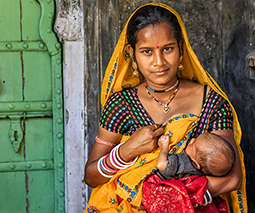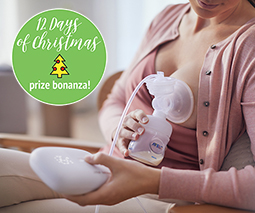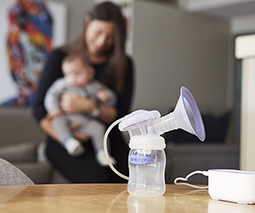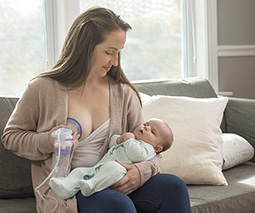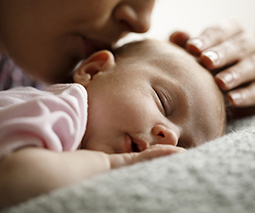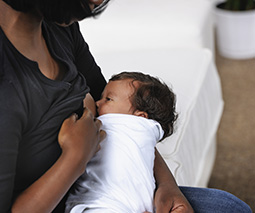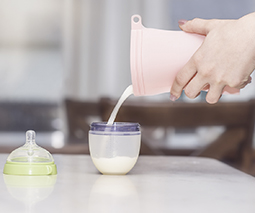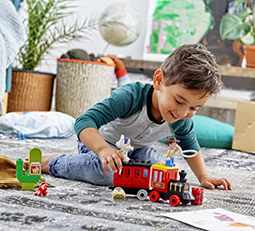Fact or fiction: 13 common breastfeeding myths busted
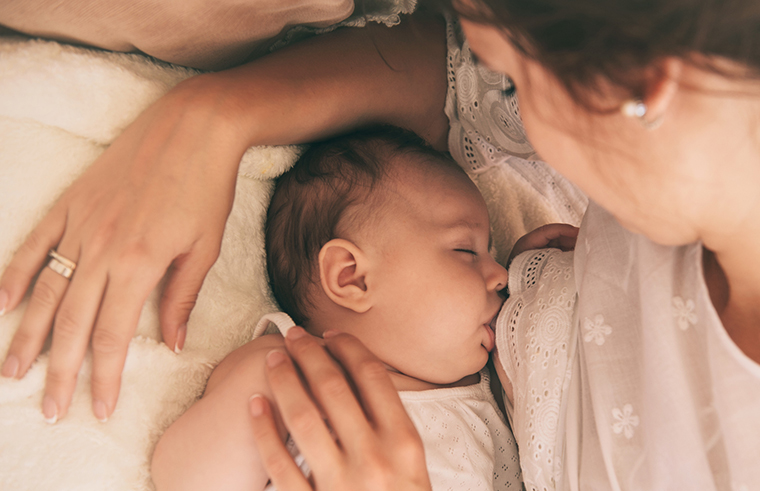
The pressure on new mums can be bad enough without the wrong information guiding the choices we make for our babies.
Sydney midwife and lactation consult Jane Bolster thinks every mum deserves to navigate parenthood feeling supported and empowered to make the choices right for them and their families, and we can’t agree more.
So if you are already a nursing mama, or you’re expecting your little bundle soon and wondering if breastfeeding is for you, we’ve busted some of the most common breastfeeding myths that plague new mums.
From avoiding your favourite chilli dish, what to do about sore nipples, when to give up on breastfeeding and how to stop your baby from biting, Jane sets the record straight on some of the greatest breastfeeding fiction out there.
1. Breasts must be cleaned before feeding baby
In most cases, it is absolutely not necessary. There is a natural lubricant that is released from around the areola – the darkened area around the nipple – and that keeps the breast at the right PH level and it prevents common conditions like thrush and dermatitis. If using breast pads that leave a residue or any creams and gels other than baby-safe sterilised lanolin, you will need to wipe.
2. Breastfeeding mums must avoid spicy food such as hot curries
Do you love your chilli? Well, there is no reason to give it up. While some mums might find some foods are better avoided, in most cases breastfeeding women can eat whatever they want. When a woman is pregnant, their baby gets tastes of the food she eats through the amniotic fluid and then when the baby is born and breastfed, the breast milk actually tastes of the food the mum eats. This leads to the introduction of solids being easier because the baby recognises the flavours. There is no evidence to say food that gives the mother wind will give the baby wind.
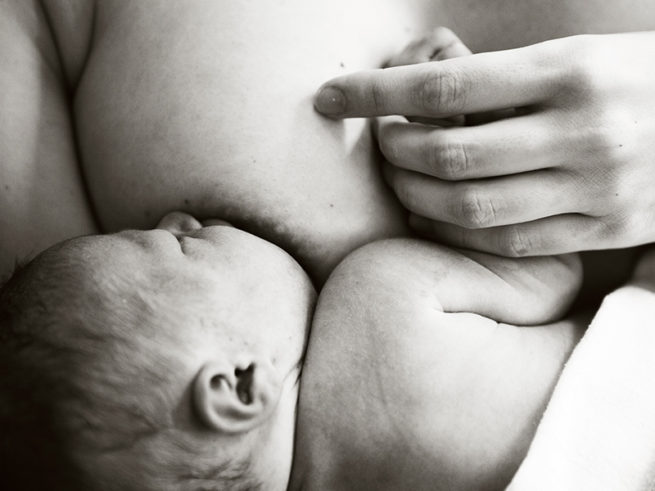
3. Don’t breastfeed if sick or on antibiotics
If a mother is sick, the antibodies in her breast milk will protect her baby, meaning her baby won’t get the illness or it will be less severe. It is important baby continues to breastfeed when a mother is sick. When it comes to antibiotics, most are fine for your baby to still breastfeed at the same time. If you have concerns, speak to your GP.
4. If the baby is vomiting, has diarrhoea or a hard tummy, you must stop breastfeeding
A normal baby’s poo is liquid with curds in it and a little bit of happy chuck is normal. But if a baby has gastro, mum should continue breastfeeding regardless because breast milk is the most easily digestible form of nutrition and the biological norm for babies to maintain their nourishment and stay well hydrated. Definitely get baby checked out by a doctor or at the emergency room, but continue to breastfeed.
5. There are so many places you aren’t allowed to breastfeed
You are legally allowed to breastfeed anywhere in Australia. No one has the right to tell you not to breastfeed.
6. It is normal for breastfeeding to hurt sometimes
It is normal to experience a period of increased sensitivity during the first six to eight weeks of breastfeeding due to the hormones of pregnancy. The initial attachment of the first 30 seconds to a minute, for quite a few women, can be quite intense but, once that’s up, there should be no pain. Pain is an indication that something is not right, it leads to nipple damage and other problems like lower milk supply, potential blocked ducts and mastitis. Don’t ignore the pain. Just because it looks okay or people tell you it is okay, if it doesn’t feel right to you then it is not right and the attachment needs to be changed.
7. If baby bites, it is time to give up breastfeeding
That is definitely not the case. If your baby has teeth, it doesn’t mean she is going to bite. If she does bite, it’s a case of letting her know it hurts and that biting mummy is not on. Sometimes it is an intermittent thing and babies learn so quickly. A quick ‘ouch’ from mum can be enough to teach baby not to bite.

8. Using a breast pump in the first few days after birth will help you have enough milk for baby
Absolutely not. Colostrum is not made in a way to fill the baby’s gut, colostrum is made to coat the inner lining of your baby’s body, to coat the gut, the intestines, and the bowel. It acts as a laxative to push the meconium (baby’s first poo) out, which decreases the chance of jaundice. Your baby has enough reserves from the placenta during her time in utero and fat stores on her body to last the three days she is going to just have colostrum. When your breast milk comes in, it is usually at a greater volume than your baby actually needs. The most important thing to ensure you have as much milk as you can for baby is to provide as much skin-to-skin contact as possible, to give baby constant access to the breast whenever she wants it and for however long she wants it.
9. Baby should only be offered one breast at each feed
You should actually feed according to your baby’s needs. If you offer baby one breast and she comes off and she is full, there is no way you will get your baby to open her mouth. If baby isn’t full, she will get back on. If she is fussing on and off the breast, baby is saying she is hungry but there just isn’t enough on that side. Some babies only want to drink one side and some want both. It changes and you should be guided by the feed. Never time a feed.
10. If the weather is hot, baby should be given water as well as breast milk
Under the age of 6 months, your baby doesn’t need to be offered additional water, even during hot weather. Breast milk contains a large percentage of water as well as important nutrients. Baby will probably want more feeds to quench her thirst when it is hot, but you’ll probably find the feeds will be shorter. Once solid food is introduced, you can offer additional water but do this after a breastfeed – not before.
11. Demand feeding will create bad habits
Demand feeding enables your baby to regulate the amount of milk she wants and allows mum to produce the most amount of milk she can. If your baby attaches to the breast when she is hungry, she will actually feed really well. Baby will feed more efficiently and quickly, which means mum will have more milk. Letting your baby sleep allows for her brain to develop and lets mum get some rest too. Demand feeding allows a mother to get into the rhythm of her baby.
12. After baby reaches nine months, there are no benefits of breastfeeding
The World Health Organisation recommends that babies are exclusively breastfed for six months, then introduced to solid food. Breast milk is still the primary source of nutrition until about nine months when solids provide most of the nutrition, but breast milk is still an essential component.
13. Breastfeeding should definitely stop by your baby’s first birthday
It’s an individual choice each woman should make for themselves and her baby. Women should be given support to at least reach the World Health Organisation recommendations, which is for breastfeeding to continue for two years or beyond. The nutritional benefits and immunological benefits are still passed on to baby.
